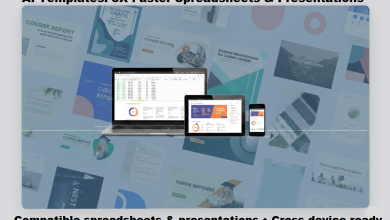
As organisations look towards the future, technology will be a focus, but talent development should not be ignored. In the UK, the adoption of AI technology is growing rapidly, and with it, the demand for professionals who possess strong skills in AI and machine learning. This focus on both technology and skills is a vital aspect of the UK government’s initiative to position the UK as a global leader in AI. It’s abundantly clear that AI is not just a passing phase that will fizzle out. The question is now not, ‘should we adopt AI?’ but rather, ‘How can we maximise the technology’s impact?’. Central to answering this question is the battle for talent.
A key challenge for organisations and businesses of all kinds is that AI skills are still hard to come by, while the demand is surging. As a result, tech leaders must adopt effective strategies to get the skills they need into their workforces.
Skills-based Hiring
AI skills are still relatively nascent, meaning that companies may find themselves struggling to find talent via normal strategies and outreach. Typical qualifications such as degrees or sufficient experience in relevant AI-based roles are still not widespread, causing headaches for hiring teams who are trying to get much-needed talent into their organisations.
This necessitates a shift in approach, focusing much more on transferable skills, such as machine learning, data analytics, and Python, which can be applied to a range of AI use cases. However, on top of this, it is imperative for organisations to also seek those workers who possess soft skills such as critical thinking, communication, and adaptability.
Upskilling
However, external hiring alone is not sufficient. Organisations must look inwards at the talent they currently have to see if there are opportunities for upskilling. Once identified, a comprehensive strategy must be developed to equip current workers with the skills they need.
These upskilling efforts must be part of a broader AI strategy. Teams must be very clear about what they are looking to achieve with AI and ensure that everything is geared towards that. AI technology is evolving at an incredible pace and without this approach, teams can easily focus on the wrong things or those that become quickly obsolete.
Once a strategy is agreed upon, teams should foster a culture of learning. Much of this will have to be generated from within, however, it may also involve partnering with an AI vendor or an academic institution. These sorts of organisations will be able to provide crucial expertise and insight into the skills needed and how best to train them. With this expertise on board, organisations can develop personalised learning paths for those who have the skills and desire to take on AI roles. These learning paths must be engaging and fully leverage the vast array of educational platforms now widely available throughout the working world, such as e-learning, or virtual on-the-go learning tools.
Contingent Workers
Acquiring and retaining the right talent will be at the core of any strategy; however, fully implementing these efforts can take time. This is particularly prevalent in the AI space. As the industry is moving so quickly, any missteps or delays in implementation can have a compounding effect due to how quickly organisations can fall behind the competition or miss out on the ability to fully reap benefits from certain AI products. So, what strategies are there available that allow companies to bridge skills gaps in the short term, whilst formulating and implementing comprehensive AI processes for the long term?
A solution that is continuing to grow in popularity is the use of contingent workers. These are workers brought in on an ad hoc or project basis to provide a specific set of skills or relevant experience. They often come with high proficiency in business-critical areas and bring crucial expertise and flexibility in times of need for organisations.
In the case of AI implementation, a contingent worker strategy could involve bringing in a highly proficient AI expert to help with the technical side of wider AI efforts. The AI expert would assess current capabilities and suggest appropriate technology, as well as provide the path forward in terms of implementing it. This may even involve building a specific AI tool or platform that could act as the core tenet of the wider AI strategy.
A key benefit of this approach lies in its flexibility. Once the task is complete, it may be that the contract ends, and the teams can move forward by themselves. Conversely, if the organisation deems the skills provided by the AI expert are still necessary, the contract can potentially be extended, or the company can even explore the possibility of making the employee full-time. The flexibility afforded to teams that become able to solve an acute problem without worrying about being tied down by a longer-term financial commitment is incredibly valuable. In fact, in the highly competitive and fast-moving AI world, this approach could even be the determining factor between a company able to keep pace or fall behind its competition.
AI will reshape the future of work
It is now crystal clear that AI will reshape the future of work. As such, businesses must prioritise the development of robust strategies to harness their potential effectively. Those firms that take a two-pronged approach – attracting top AI talent while simultaneously nurturing and upskilling their existing workforce – put themselves in the best position to succeed.
In addition, these strategies must be thoughtfully integrated. Organisations that think too much in the short term without considering their ultimate objectives will suffer. The ideal approach will be unique to each business because of many different factors, such as the industry a company is in, the size of its operations and it current AI skills inventory. However, it’s key to develop an AI strategy with a clear long-term goal in mind and base subsequent decisions around that.




